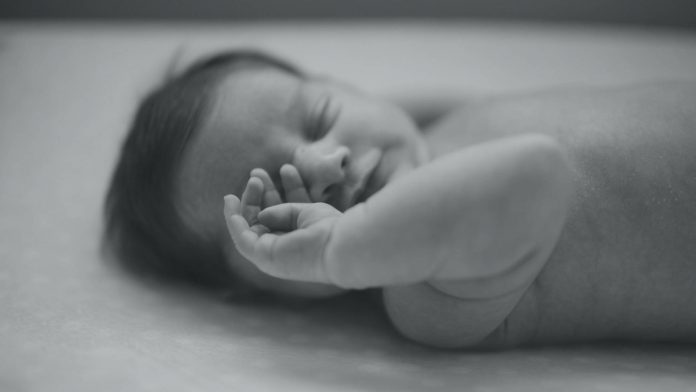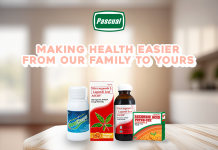Babies tend to sneeze a lot and at times, even get colds in their little noses. As moms, we cannot help but get worried every time they sneeze or get the sniffles. So what do millennial moms do to cope with their anxiety? Research and arm ourselves with the knowledge to better cope with the situation. In this case, how to alleviate our baby’s discomfort over his colds and whether we need to schedule that pedia checkup ASAP.
Why do babies get colds?
Babies do tend to get colds because their immune system is still developing, so they are not capable yet to fight off viruses that can cause colds or other infections. Viruses, including those that can cause common colds, can spread through the air or droplets in surfaces when an infected person coughs or sneezes. Babies then get infected when they touch these surfaces then put their hands in their mouths as they are prone to do.
Aside from this, babies can also catch colds or viruses from older siblings, other babies they play with, or even from adults.
What are the common symptoms of colds in babies
Babies can start to manifest symptoms around 1 to 3 days after they get infected. Their symptoms can include:
- Stuffy nose
- Runny nose — their mucus could start as clear but could soon turn yellow or green
- Sneezing
- Coughs
- Fussiness
- Fatigue
- Reduced appetite
- Trouble sleeping
- Fever
- Vomiting or diarrhea
Typically, babies get well from colds around 7 to 10 days after.
What first aid remedies can be done to manage my baby’s colds?
Colds don’t need treatment and go away on their own after a few days. Antibiotics are not a treatment option as it’s used to treat bacteria and not viruses.
However, moms can also manage their baby’s discomfort from colds by doing the following:
- Clear the mucus. You can suck out the mucus from your baby’s nose using an infant nasal bulb or aspirator. Doing so can clear her airways and allow her to be more comfortable.
- Add moisture. You can also use saline spray (as recommended by your pediatrician) to moisten and clear your baby’s nasal passages before suctioning. Another option is to use a cool-mist humidifier if you feel that your home or room is too humid.
- Give more fluids. Breastfeed your baby as much as possible. Hydration can help loosen your baby’s mucus.
- Manage fever and pain. You can manage or treat your baby’s fever if you think that it’s making your child uncomfortable. You can do so by giving your baby fever medication as prescribed by your pediatrician. DO NOT SELF-MEDICATE. DO NOT GIVE YOUR CHILD ANY HERBAL MEDICINES OR OTHER MEDICATION THAT’S NOT PRESCRIBED BY YOUR PEDIATRICIAN. And always follow the right dosing instructions.
- You can also ease your child’s discomfort by:
- Raise your child’s head when he’s lying down to help relieve congestion.
- Avoid irritants, such as cigarette smoke and strong smells.
When do I need to take my baby to our pediatrician?
If your baby is younger than 3 months old, then it’s best to call your pediatrician as soon as the symptoms start, especially if he has a fever. Young babies’ bodies are still small so infections can spread faster, compared to older kids. At the same time, cold-like symptoms in young babies might be a sign of a more serious illness such as pneumonia or an ear infection, so it’s best to have him checked ASAP.
For older babies, call your pediatrician ASAP if you notice any of the following symptoms:
- Fever of 38.8°C or higher
- Your baby has a hard time breathing
- Your baby has not appetite — does not want to feed or latch/drink milk
- Manifests signs of dehydration such as crying without tears or fewer wet diapers than usual
- Lethargic or sleepy/sleeps most of the time
- Does not get well after a week or so
Can I prevent my baby from getting colds?
There’s no surefire way of preventing your baby from having colds, but you can try to minimize his exposure by:
- Minimizing his exposure to other people who might be sick — including family and friends.
- Staying away from crowded places whenever you’re with your baby, unless necessary.
- Practice proper handwashing and do it regularly throughout the day. Ask the same from your baby’s caregivers.
- Regularly wash your baby’s toys with soap and water.
- Don’t let anyone else, including his siblings, use your baby’s utensils, cup, or towels.
- Ensure that your older kids know and practice proper hygiene and cough etiquette — including proper handwashing and coughing or sneezing into their elbows and not their hands.
- Do not expose your child to cigarette smoke as it can increase your baby’s risk of getting sick.
One of the most important things to remember when your baby’s sick is DO NOT PANIC. Doing so can affect your decision-making process, which can then adversely affect how you handle the situation. Remember, your baby needs you and relies on you to make the right decisions when it comes to his health. So don’t fret much, mama. You got this.
References: (1) WebMD, (2) WebMD
Join our MomCenter Community on our Facebook page and Facebook group for more insights on motherhood and parenting.





